- Home
- Robin Cook
Death Benefit Page 2
Death Benefit Read online
Page 2
Pia continued to walk quickly as they made their way out of the dorm and turned right toward the medical center complex. Columbia University Medical Center lies in Washington Heights on Broadway as it runs north along upper Manhattan’s spine. Even at this time of the morning, the place was busy. The more purposeful people in the varying-length white coats making their way along 168th Street were the doctors, students, and staff of the hospitals and research facilities. The patients and their relatives who were arriving were more hesitant, trying to figure out where they needed to be and clearly apprehensive of why they were there and what the day might bring.
George turned up the collar of his jacket against the sharp wind that came off the Hudson River and was funneled into 168th Street by the curve of Haven Avenue. Tomorrow, it would be March, the month in which any day the temperature might be in the sixties or it could snow. At that moment it wasn’t particularly cold, but the wind was a reminder that winter still had some kick.
George and Pia were heading for different buildings to start their fourth-year month of elective. Fourth year of medical school was a series of monthlong rotations in various specialties, which included an elective period where the individual students could choose something of their particular interest. That month Pia was to do research, as she’d done during her month of elective in her third year. George was to work in radiology, as he too had done the previous year. These choices were particularly apropos since three weeks earlier, George, Pia, and the rest of the class of 2011 had learned the results of the residency matching program. Both Pia and George had been awarded positions there at Columbia University Medical Center, thanks to their superb academic records and strong faculty recommendations: Pia in internal medicine and George in radiology. By special dispensation, Pia would also be starting a concurrent Ph.D. program in molecular genetics, which would allow her to continue her lab work while fulfilling her requirements as a medical resident.
Awaiting Pia that morning at the William Black Medical Research Building was the noted molecular geneticist Dr. Tobias Rothman, winner of both a Nobel Prize and a Lasker Award. In addition to being known for his accomplishments, Dr. Rothman was even better known around the medical center for being a difficult person to work with, thanks to his renowned total lack of social graces. Rothman did not suffer fools. In fact Rothman did not suffer anyone except his long-term research assistant, Dr. Junichi Yamamoto. Originally Rothman’s reputation had made George nervous for Pia when she started her third-year elective in the man’s lab, but his concern had been tempered by his personal knowledge that she herself was a handful. From direct experience he knew that she could be counted on to hold her own in most any situation. As it had turned out, to everyone’s surprise, even Pia’s, she had gotten along famously with the famed and feared researcher. In fact it had been Rothman’s suggestion that Pia do a Ph.D. program at Columbia with her practical work taking place in his lab. Until Pia had come along, Rothman had never mentored anyone. For a while it had been a major point of gossip in the entire medical center as people wildly hypothesized what on earth was going on between the exotically attractive medical student and the universally disliked but respected curmudgeon who was the center’s major research celebrity.
“Pia! Wait up!” George called out. In her typically self-absorbed fashion, Pia had gotten ahead of George in the crowd. Dodging the phalanxes of medical students in their white coats who were all converging on the Black building, George scuttled ahead to catch Pia just before she entered the building. He pulled her aside. Pia looked up at George with her big brown eyes wide open, as if surprised to see George, whom she was supposed to be walking with.
“Do you want to have lunch? It’s the first day, so they might go easy on us. I know for me it’s probably going to get crazy after today.”
“I don’t know, George. Rothman’s . . . Rothman’s, you know . . .”
“Rothman’s an asocial asshole, that’s what I know.”
“Let’s not argue! I know what you and just about everyone else thinks, but the man’s been good to me. I don’t know what he has in mind for me today or for the month, for that matter. What I do know is that I can’t make plans to meet for lunch before I find out what the day is going to bring.”
“I can tell you what most people think he has in mind for you.”
“Oh, please!” Pia snapped. “Let’s not get into that again. I’ve told you time and again the man’s never made one advance or off-color comment in my presence. What he is is a genius who believes he’s surrounded by morons, and he might be right, at least comparatively. All he’s interested in is his work, and I’m interested in it too. I’m well aware of his asocial reputation, but I’m lucky that he tolerates me. I can’t wait to get in there. If I have a moment as the day progresses, I’ll call your cell.”
For a brief second George saw red. All at once his brain was flooded with unreasonable jealousy of the prick Rothman. Everybody hated the guy and here was the woman he was romantically obsessed with essentially telling him to bug off and that she couldn’t wait to rendezvous with the aged sourball instead of planning to get together for what might be the last lunch of the month. George sucked in a lungful of air while he regarded Pia’s obviously scornful look. In a flash he wondered anew what the hell he was doing continuing to pursue this woman when she seemed to be merely tolerating his company.
Instinctively George knew he shouldn’t put so much importance on whether or not she would make plans to meet for lunch, but he couldn’t help it. It was just another episode in a long list of episodes. The last time they had made love, which was the way George wanted to think about the “hookup,” as she called it, George had tried to be open about how her dismissing him made him feel. Her response then, as it was now about lunch, was to get irritated. Of course, after he left her room, instead of feeling good about making his feelings known, he’d worried himself sick that he’d scared her off for good. But he hadn’t. Instead, a couple of days later, George had received a surprising note from Pia in his mailbox. “Maybe you should call Sheila Brown.” It included a cell phone number. George called Sheila Brown and had one of the oddest phone conversations of his life. He was to learn more about Pia’s past in that one conversation than she had ever shared with him.
“Hi, my name is George Wilson. Pia Grazdani asked me to call you.”
“Hello, George. Pia told me you would be calling. I was Pia’s caseworker and her therapist for some time. Pia told me it was okay to talk to you.”
“Oh, er, okay . . .” Caseworker? Whatever George had been expecting, it wasn’t this.
“I know it’s extremely unusual for a therapist to talk to a stranger about one of her patients, but Pia asked me to speak with you.”
Therapist? This was going to be interesting.
“Normally I wouldn’t be speaking to you as I am since it’s against any number of rules of my profession, but Pia persuaded me to do so. If I can help Pia emerge from what she faced in her upbringing, I’m willing to do most anything within reason.
“I worked with Pia for years, since she grew up in foster care, including a stint in what used to be called a reform school. As a result, let us say that she’s always found it very hard to form any meaningful relationships. Trust is an issue. She didn’t tell me much about you, but I find the fact that she asked me to talk with you very encouraging. I think she wants you to know something about her, but she can’t tell you herself. So she asked the person who she believes knows her best to do it. Pia has different ideas about privacy and attachment than most people.”
That George knew from painful experience.
Without going into specific details, Sheila encouraged George to “keep trying” with Pia because it was her opinion he would be “good” for her. Sheila concluded by giving him her office number to have in addition to her cell phone number in case he ever wanted to call back. George never did, and despite Sheila’s disclaimers, he questioned the professionalism of the conversa
tion. At the same time he appreciated the information. He never brought up the issue directly with Pia by saying that he knew she’d been through foster care but rather tried to get her to open up about her childhood in general. Unfortunately she always responded that it was something she did not want to discuss. It was a no-go zone. That was okay with George; he set it aside and didn’t think about it. He was giving her as much time as she needed.
George let out the lungful of air with pursed lips. The slight delay gave him a chance to collect himself and not blurt out something he’d regret later. He even tried to mask the fact that he was upset.
“Well, I hope your day goes as well as can be expected,” he said finally. “I know you can handle yourself, Pia. But I still don’t know how you can stand to work with him.”
“I don’t need to get along with him, George. It’s not kindergarten. If he tolerates me and I learn from him and he can help my career, that’s all I ask. We’re grown-ups—we don’t have to be friends.”
She’d used that line before, and George had to wonder, was she talking about Rothman or about him? George’s worry that Pia was going to abandon him resurfaced.
“Okay!” George said simply, while holding up his hands in mock surrender. “Sorry to even mention it.”
“Stop apologizing!” Pia said sharply, looking at her watch. “You sound nerdy when you apologize. Now I really am going to be late.”
Pia hurried away. George asked himself what time Pia might have gotten up had he not gone to her room to wake her. He couldn’t help but notice that she’d not bothered to thank him, much less make a commitment to have lunch. Unfortunately it all was irritatingly pro forma.
Pia showed her ID to the security guard with all the other students who were mostly first- and second-year heading off to their eight o’clock lecture. Instead of following them she took the elevator to the fourteenth floor of the Black Research Building and headed for Rothman’s sizable laboratory. He commanded the most space of any researcher in the entire center. As soon as she went through the anonymous-looking metal door and entered the suite, she could sense that the lab’s day was already in full swing. The three research technicians, Panjit Singh, Nina Brockhurst, and Mariana Herrera, were loitering around the lab’s communal coffeepot having already calibrated all the instrumentation that needed to be done on a daily basis. Rothman, fastidious about what he ate and drank, kept a Nespresso machine in his office that only he and Dr. Junichi Yamamoto, his senior associate, were allowed to use.
“Morning, Miss Grazdani,” said Marsha Langman, Rothman’s secretary, from behind her desk. One overdefined eyebrow was raised as she looked at the clock on the wall opposite. “You don’t want to make this a habit.”
Pia followed the woman’s line of vision and glanced at the clock. The second hand had just ticked past vertical: it was 7:49. Pia stopped and half turned toward Rothman’s ultraloyal retainer-cum-secretary for the inevitable reprimand.
“You know he likes everyone to be early,” Marsha said in an accusatory tone.
“I’m not late,” said Pia. Students were supposed to begin lectures and other activities at eight unless they had been on call the night before for specific rotations that required it.
“Ah, but you aren’t early either. Let’s not start the month off on the wrong foot. And I should warn you, you’ll be having some company in your office. There’s a man from maintenance in there trying to find a problem in the wiring. The security system is down.”
“How long’s that going to take?”
Marsha, a middle-aged African-American woman in a lab coat her position didn’t call for, made a face that said, How would I know?
Pia was exasperated. There was barely room for her in what was generously described as an office.
“Is the chief going to have time for me this morning?” Pia was one of the handful of people who didn’t reflexively kowtow to Rothman and wait for him to come to them. As Pia asked the question she turned to fully face Marsha. The research technicians were quiet. Pia wondered if they’d timed their coffee run for her predictably not-quite-early arrival and were eavesdropping for any possible gossip.
“You know how pressed for time he always is,” Marsha said. “He’s being pressured to finish his most current salmonella typhi experiment with Dr. Yamamoto. We have to e-mail the manuscript to The Lancet in the next day or so.”
Marsha always talked as if she were actively involved in the research. It was part of her strategy of erecting barriers and building sand traps for those wanting time with Rothman. She watched over him like a killer guard dog.
“He’s been in since six”—“in” being the biosafety level-3 lab, frequently referred to as BSL-3, where the work on the salmonella strains was being done. “I’ll see if I can get word to him that you want to speak to him.”
“Thank you,” Pia said, her eyes betraying irritation. “Getting word” to Rothman meant flipping a switch and talking to him by intercom. Hating to waste time and having finished the last project he had assigned to her, Pia needed to see Rothman to find out what she was going to be doing that month. And now there was some workman in her office to complicate things.
Pia was fortunate to have an office at all. Few of the other people in the lab had such a privilege. When Rothman’s chief technician was fired after getting into an argument with Rothman over some picayune detail of lab procedure, his successor, Arthur Spaulding, took an office nearer the biosafety level-3 area, and Pia took over Spaulding’s broom closet. Pia saw that her office door was ajar, and she bristled. There were sensitive files in there, even if only a handful of people on the planet would understand what they meant. As she entered she saw that her bench area that also served as her desk was occupied—an electrical blueprint was laid out on the flat surface and there were tools and wires strewn on top. In the corner of the tiny, windowless room was a stepladder with a human form standing on the top platform, head and shoulders hidden up inside the dropped ceiling. Three panels had been taken down and stacked against the wall.
“Excuse me!” Pia called out. When there was no response, she called louder, “Hey, you up there!”
Pia’s sharp words caused the man to flinch and hit his head on a pipe up in the ceiling. The man let out an indistinct curse and slowly emerged from the ceiling. After taking one look at Pia, he climbed down from the stepladder. He was about forty-five with grayish stubble and salt-and-pepper hair, wearing dark blue coveralls. His forehead was deeply lined, and he had the sunken cheeks and pale complexion of a lifelong smoker. His body was thin but muscular. His security tag read “Vance Goslin.”
“How long are you going to be?” Pia demanded. She had her arms akimbo.
Goslin was struck immediately by Pia’s remarkable and exotic beauty, her glowing, flawless skin, her full lips, and, perhaps most of all, her huge dark eyes. Adding to her allure was her apparent confidence and forthrightness. In Goslin’s world, girls who looked like Pia acted significantly differently. He was more than casually attracted to her. He was intrigued.
“Depends when I find the problem,” he said. He pointed to two areas on the blueprints lying on the bench. He had a distinct accent that Pia thought she recognized, especially given the name Goslin. “If the problem is here, it’s easy to fix. If the problem is there, it’s harder, but one way or the other we’ll get it done. It might even be done by tonight.”
Goslin nodded as he finished talking, eagerly continuing to scan Pia’s shapely body as he’d done while he’d been talking. He did it overtly, as if it were a matter of right. Eventually his gaze alighted on Pia’s hospital ID. “Grazdani,” he voiced, raising his eyebrows questioningly. “Now, that’s an unusual name.”
Pia didn’t respond, making him think she might be hard of hearing.
“Your name is unusual. Is it Italian?” he said, raising his voice. He had assumed a wry smile as if he knew Grazdani was not Italian. It was his way of flirting.
“No, it isn’t Italian. And
why are you shouting?”
Pia had talked about her Albanian heritage maybe twice in her life and she wasn’t about to do it now with this person. There were thousands of Albanians in New York City, and Pia remembered enough of the language to recognize an Albanian accent when she heard it. Once when she was ordering a slice of pizza, two young men behind the counter started a frank appraisal of her physical attributes in their language before Pia asked them in English if they wanted her to talk to the manager about their rudeness.
“Actually I’d guess Albanian,” Goslin said, the smile continuing. “I’m of Albanian descent, and I have a lot of Albanian friends here in New York. They work in maintenance like me. We’ve kinda taken over the business. . . .”
Pia wasn’t listening. It was barely an hour since she’d been dreaming about one childhood nightmare and now this man was reminding her of another—her father—which added to her growing irritation. Even though she was offering nothing to this maintenance worker that he could take as encouragement, he was still talking, trying to engage her in conversation.
“So where are you from?” he asked. His eyes narrowed and head tilted, as if he were about to make a guess. Such a situation was not uncommon for Pia. Many people, particularly men, tried to guess her genealogy from her appearance, usually coming up with such suggestions as Greek, Lebanese, or even Iranian, but she wasn’t going to play the game with this guy even though he’d been correct about her name. Her father was indeed Albanian, although her mother was Italian.
“I’m American,” Pia said. “Hurry up with what you’re doing! I’m going to need my office sooner rather than later.”
“And what do you do?” Goslin asked, vainly trying to keep the conversation going.
Pia didn’t answer. She walked out of the room, pausing only to pick out a couple of files she thought she might need.

 Shock
Shock Mutation
Mutation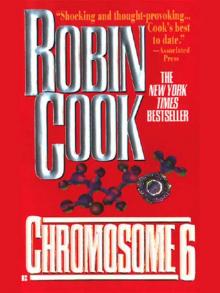 Chromosome 6
Chromosome 6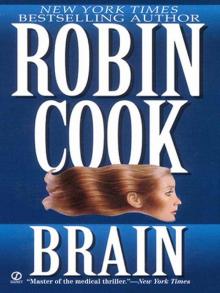 Brain
Brain Intervention
Intervention Invasion
Invasion The Legend of Parzival: The Epic Story of His Quest for the Grail
The Legend of Parzival: The Epic Story of His Quest for the Grail Acceptable Risk
Acceptable Risk Cell
Cell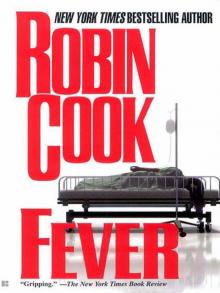 Fever
Fever Death Benefit
Death Benefit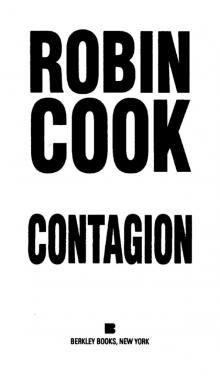 Contagion
Contagion Mindbend
Mindbend Coma
Coma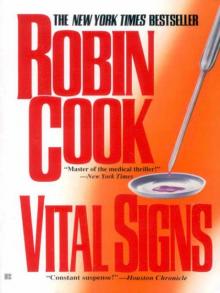 Vital Signs
Vital Signs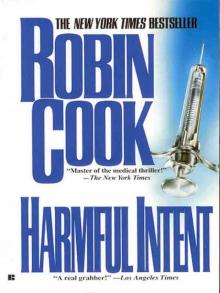 Harmful Intent
Harmful Intent Critical
Critical Foreign Body
Foreign Body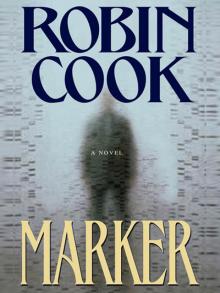 Marker
Marker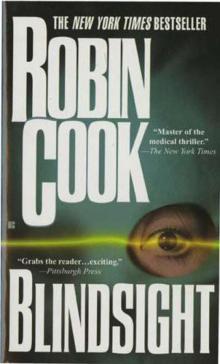 Blindsight
Blindsight Terminal
Terminal Sphinx
Sphinx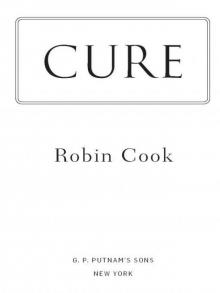 Fatal Cure
Fatal Cure Host
Host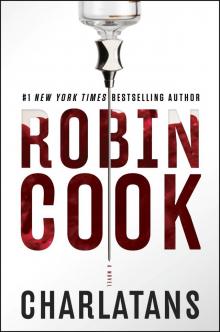 Charlatans
Charlatans Crisis
Crisis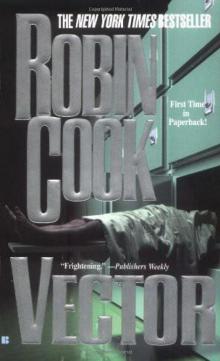 Vector
Vector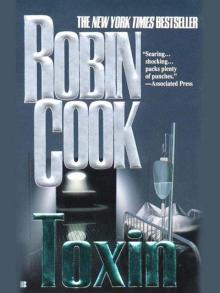 Toxin
Toxin Abduction
Abduction Viral
Viral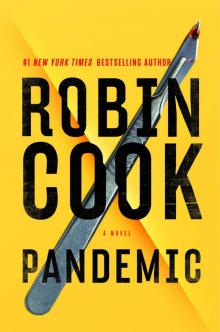 Pandemic
Pandemic Outbreak
Outbreak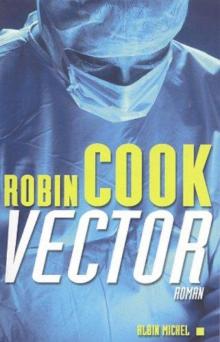 Vector js&lm-4
Vector js&lm-4 Godplayer
Godplayer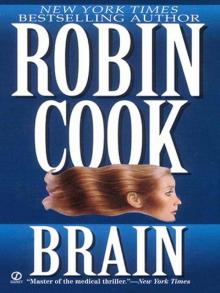 A Brain
A Brain Year of the Intern
Year of the Intern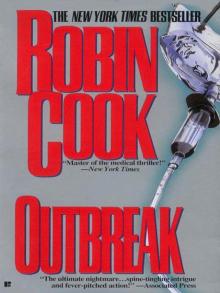 Outbreak dmb-1
Outbreak dmb-1 Cure
Cure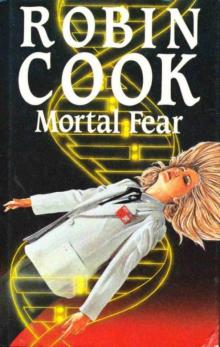 Mortal Fear
Mortal Fear The Legend of Parzival
The Legend of Parzival Vital Signs dmb-2
Vital Signs dmb-2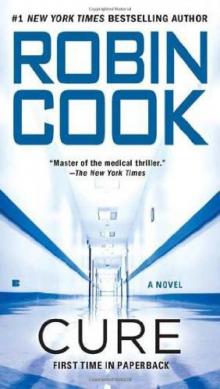 Cure (2010) sam-10
Cure (2010) sam-10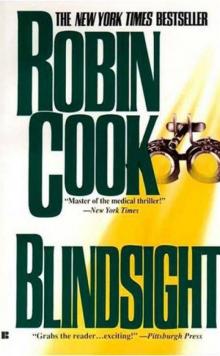 Blindsight sam-1
Blindsight sam-1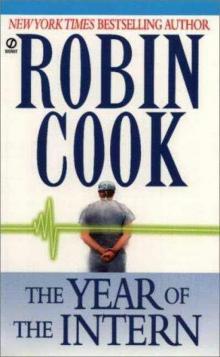 The Year of the Intern
The Year of the Intern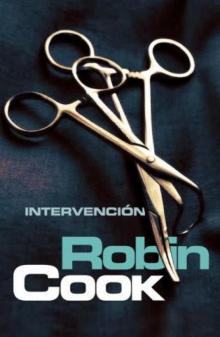 Intervention sam-9
Intervention sam-9 Foreign Body sam-8
Foreign Body sam-8